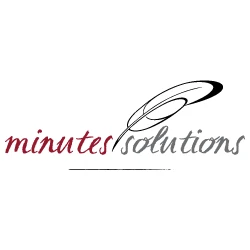Running a nonprofit organization involves more than passion and dedication; it requires strong governance and accountability. One of the most effective tools for achieving this is maintaining accurate Nonprofit Minutes and, more specifically, Nonprofit Board Minutes. These written records not only document decisions and discussions but also help establish credibility and compliance for the organization.
What Are Nonprofit Minutes?
Nonprofit Minutes are the official written records of what takes place during meetings held by a nonprofit organization. They serve as a permanent record of discussions, votes, and actions taken. Just like in corporations, minutes are critical in nonprofits because they show that the organization is operating transparently and responsibly.
These minutes often include the date, time, attendees, agenda items, summaries of discussions, decisions made, and assigned responsibilities. They provide a roadmap for accountability and ensure that all members of the nonprofit have clarity about the organization’s direction.
Understanding Nonprofit Board Minutes
While all meeting minutes are important, Nonprofit Board Minutes hold special significance. The board of directors is responsible for overseeing the nonprofit’s mission, finances, and strategy. Therefore, the minutes of board meetings are considered legal documents that can be reviewed by regulators, auditors, donors, and even the public.
Nonprofit Board Minutes typically include:
- The meeting date, time, and location.
- A list of directors present and absent.
- Approval of previous minutes.
- Reports from committees or officers.
- Major decisions, such as budget approvals, program launches, or fundraising strategies.
- Conflicts of interest disclosures and how they were handled.
- Action items with assigned responsibilities.
These records demonstrate that the board is fulfilling its fiduciary duties and making decisions in the best interest of the nonprofit and its stakeholders.
Why Nonprofit Minutes and Nonprofit Board Minutes Matter
Maintaining proper Nonprofit Minutes and Nonprofit Board Minutes is more than a best practice—it’s a requirement for organizational health. Key reasons include:
- Legal Compliance – In many jurisdictions, nonprofits are legally required to keep accurate board minutes. Regulators and tax authorities may request them during audits.
- Transparency and Accountability – Donors, volunteers, and stakeholders want assurance that funds and resources are being used appropriately. Clear minutes provide that transparency.
- Institutional Memory – Nonprofit leadership often changes due to term limits or transitions. Minutes ensure continuity by documenting past decisions.
- Dispute Resolution – If disagreements arise, well-kept Nonprofit Board Minutes provide evidence of what was discussed and decided.
- Grant Applications and Fundraising – Some grantmakers and donors may review board minutes before committing funds, as they reflect responsible governance.
Best Practices for Recording Nonprofit Minutes
To ensure effectiveness, organizations should follow a structured approach when preparing Nonprofit Minutes:
- Be Accurate but Concise: Record decisions and key points rather than verbatim conversations.
- Maintain Neutrality: Avoid personal opinions or informal remarks.
- Highlight Action Items: Specify what needs to be done, by whom, and by when.
- Distribute Promptly: Share the minutes with attendees soon after the meeting for review and approval.
- Store Securely: Since Nonprofit Board Minutes are legal records, they should be stored safely in both physical and digital formats.
Digital Tools for Nonprofit Minutes
Today, many nonprofits are turning to digital platforms to streamline documentation. Tools such as Google Docs, Microsoft OneNote, and board management software allow real-time collaboration on Nonprofit Minutes. Some even offer automatic transcription, ensuring no detail is missed. Storing Nonprofit Board Minutes in secure cloud platforms also makes it easy for board members to access records from anywhere, supporting transparency in remote or hybrid organizations.
Conclusion
In conclusion, maintaining accurate Nonprofit Minutes and Nonprofit Board Minutes is essential for ensuring compliance, transparency, and good governance. These records are not just administrative paperwork but legal and strategic tools that safeguard the integrity of the organization. By keeping thorough, well-structured minutes, nonprofits can strengthen donor confidence, enhance board accountability, and ensure their mission continues to thrive for years to come.


